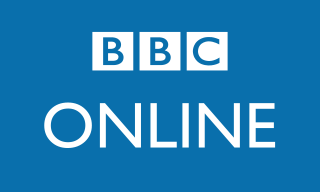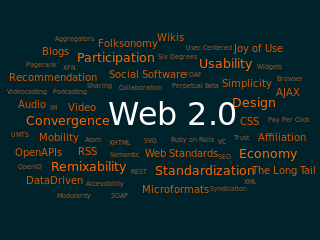Related Research Articles
Telecommunications in Namibia include radio, television, fixed and mobile telephones, and the Internet.
Telecommunications in Rwanda include radio, television, fixed and mobile telephones, and the Internet.
Telecommunications in Tanzania include radio, television, fixed and mobile telephones, and the Internet available in mainland Tanzania and the semiautonomous Zanzibar archipelago.

Deutsche Welle or DW is a German public state-owned international broadcaster funded by the German federal tax budget. The service is available in 30 languages. DW's satellite television service consists of channels in English, German, Urdu, Hindi, Spanish, Bengali, and Arabic. The work of DW is regulated by the Deutsche Welle Act, meaning that content is intended to be independent of government influence. DW is a member of the European Broadcasting Union (EBU).
Web syndication is a form of syndication in which content is made available from one website to other sites. Most commonly, websites are made available to provide either summaries or full renditions of a website's recently added content. The term may also describe other kinds of content licensing for reuse.

Community radio is a radio service offering a third model of radio broadcasting in addition to commercial and public broadcasting. Community stations serve geographic communities and communities of interest. They broadcast content that is popular and relevant to a local, specific audience but is often overlooked by commercial or mass-media broadcasters. Community radio stations are operated, owned, and influenced by the communities they serve. They are generally nonprofit and provide a mechanism for enabling individuals, groups, and communities to tell their own stories, to share experiences and, in a media-rich world, to become creators and contributors of media.

BBC Online, formerly known as BBCi, is the BBC's online service. It is a large network of websites including such high-profile sites as BBC News and Sport, the on-demand video and radio services co-branded BBC iPlayer, the children's sites CBBC and CBeebies, and learning services such as Bitesize. The BBC has had an online presence supporting its TV and radio programmes and web-only initiatives since April 1994, but did not launch officially until 28 April 1997, following government approval to fund it by TV licence fee revenue as a service in its own right. Throughout its history, the online plans of the BBC have been subject to competition and complaint from its commercial rivals, which has resulted in various public consultations and government reviews to investigate their claims that its large presence and public funding distorts the UK market.

The World Association of Community Radio Broadcasters is the international umbrella organization of community radio broadcasters founded in 1983, with nearly 3,000 members in 110 countries. Its mission is to support and contribute to the development of community and participatory radio along the principles of solidarity and international cooperation.

The Center for International Forestry Research (CIFOR) is a non-profit scientific research organization that conducts research on the use and management of forests with a focus on tropical forests in developing countries. CIFOR is the forestry research center of the Consultative Group on International Agricultural Research (CGIAR), a network of 15 research centers around the world that focus on agricultural research for sustainable development, working closely with governments and other partners to help develop evidence-based solutions to problems related to sustainable agriculture and natural resource management.
The social web is a set of social relations that link people through the World Wide Web. The social web encompasses how websites and software are designed and developed in order to support and foster social interaction. These online social interactions form the basis of much online activity including online shopping, education, gaming and social networking services. The social aspect of Web 2.0 communication has been to facilitate interaction between people with similar tastes. These tastes vary depending on who the target audience is, and what they are looking for. For individuals working in the public relation department, the job is consistently changing and the impact is coming from the social web. The influence, held by the social network is large and ever changing.
LIVE365 is an Internet radio broadcasting and listening network where users are able to create their own online radio stations, or choose to listen to thousands of human curated stations created by people from around the globe. LIVE365 is unique in that online radio stations on the LIVE365 network were created and managed by music and talk enthusiasts, including both hobbyists and professional broadcasters. LIVE365 also has many well established AM and FM stations that utilized the LIVE365 broadcasting platform to simulcast their terrestrial radio streams via the Live365 distribution network. The Live365 network also features radio stations from well-known artists such as Johnny Cash, David Byrne, Pat Metheny, Jethro Tull, Frank Zappa, and more. LIVE365 was created in 1999, and remains one of the longest running internet radio websites for listeners and broadcasters.

Web 2.0 refers to websites that emphasize user-generated content, ease of use, participatory culture and interoperability for end users.
United Nations Radio was created on 13 February 1946. In 2017, United Nations Radio and the UN News Centre merged to form UN News, producing daily news and multimedia content in Arabic, Chinese, English, French, Swahili, Portuguese, Russian, Spanish, and Hindi. In its new iteration, UN News Audio continues to produce daily news and feature stories about the work of the UN and its member countries in eight languages for more than 2,000 partner radio stations around the world.
Justin.tv was a website created by Justin Kan, Emmett Shear, Michael Seibel, and Kyle Vogt in 2007 to allow anyone to broadcast video online. Justin.tv user accounts were called "channels", like those on YouTube, and users were encouraged to broadcast a wide variety of user-generated live video content, called "broadcasts".
Participatory Web 2.0 for development in short Web2forDev was a term coined around 2007-2008 to describe new ways of employing web services, in order to improve information sharing and collaborative production of content in the context of development work. Emerging developments in participatory Web and user-generated content platforms were seen to create conditions by which actors in development could easily relate to other stakeholders, have selective access to information, produce and publish their own content and redistribute pieces of content released by others. At this time, new social tools, such as wikis, blogs, and other user-generated content platforms, were first being considered for their ability to help development actors integrate, combine, aggregate, generate, moderate and mediate content. In a typical Web2forDev scenario data and/or functionalities from a number of free/low cost online applications are combined and served as mashups thus ensuring a wide range of online services at low cost. The term is no longer used in the development informatics or ICT4D fields.

Farm Radio International, Farm Radio International, or Radios Rurales Internationales, is a Canadian non-profit organization that was founded in 1979 by CBC Radio broadcaster George Atkins. The organization is headquartered in Ottawa, Ontario, where it has become the first international non-profit organization to work uniquely with radio broadcasters to improve food security and agricultural methods for small-scale farmers in African countries using communication for development methods.
Reblogging is the mechanism in blogging which allows users to repost the content of another user's post with an indication that the source of the post is another user.

Wall.fm is an online service for people to build and host social networking services, powered by Oxwall software. Wall.fm allows users over 18 years old to register a free account and create custom social networking websites. The site creation process does not involve any coding, and consists of only two steps. The distinctive Wall.fm features are user roles, customizable themes, activity newsfeed, website/profile/content privacy, monetization pack. One of its main competitive advantages is that the service is built on an open source platform, which means a certain degree of freedom for site owners. Wall.fm offers three plans: Starter, Pro and Ultimate. Plans offer different feature sets, disk space and bandwidth, individual support and vendor's branding removal. Every plan offers free trial.
Dgroups is a partnership of international development organisations working together towards a common vision: A world where every person is able to contribute to dialogue and decision-making for international development and social justice. The platform is administered by the Partner Members of the Dgroups Foundation (below).
Canadian online media is content aimed at a Canadian audience through the medium of the Internet. Presently, online media can be accessed by computers, smart-phones, gaming consoles, Smart TVs, MP3 players, and tablets. The characteristics of Canadian online media are strongly shaped by the Canadian communications industry, even though their statistics and findings are more often than not associated with American research. Large media companies are increasingly on the move to start up online platforms for news and television content. The exponential growth of Canadians' dependency on online content for entertainment and information has been evident in the recent decades. However, it has proven slow for Canadian online media to catch up with the constant increase of American online media. Regardless of medium, entertainment and information hubs are not solely focusing on satisfying the audience they have, but are also heavily expanding their reach to new global audiences.
References
- ↑ "Introducing Barza! – the online community for radio broadcasters : Farm Radio International Live Blog". Blog.farmradio.org. Archived from the original on 2012-07-26. Retrieved 2012-09-30.
- ↑ "ICT4D community: Barza online networking site for African farm radio broadcasters". e-Agriculture. 2007-02-12. Archived from the original on 2013-04-14. Retrieved 2012-09-30.
- ↑ "Thirty years of helping African farmers by radio". Manitobacooperator.ca. Retrieved 2012-09-30.
- ↑ "Barza – the online community for African radio broadcasters | Farm Radio International". Beta.farmradio.org. Retrieved 2012-09-30.[ permanent dead link ]
- ↑ "Barza | Soul Beat Africa". Comminit.com. Retrieved 2012-09-30.